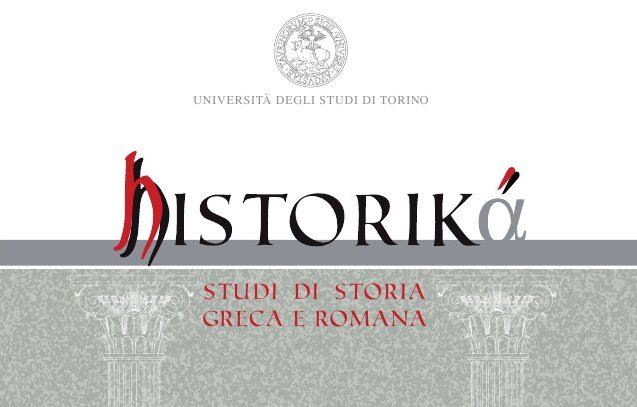La vocazione centripeta. Una divergenza ideologica tra Libanio e Temistio di fronte alla prospettiva costantinopolitana dei buleuti di Antiochia
DOI:
https://doi.org/10.13135/2039-4985/2030Abstract
Questa ricerca è incentrata su due personaggi, Temistio e Libanio, che sono esempio di intellettuali orientati verso una prospettiva volta a cogliere i profili di interazione sociale che la loro attività letteraria seppe contemplare. Se i due sono assimilabili per formazione culturale e professione, restano tuttavia ben distinti l’uno dall’altro per tutte le altre rispettive scelte di vita: dal 354 d.C. Libanio si stabilisce definitivamente ad Antiochia, un anno prima di quello in cui Temistio viene nominato senatore di Costantinopoli, inaugurando di seguito la sua carriera di intellettuale organico. L’opera di Temistio e quella di Libanio sono, in realtà, due manifestazioni tra loro antipodiche dell’ellenismo del IV secolo d.C.: quasi sempre, di fronte alle varie problematiche dell’attualità, i due intellettuali vennero a trovarsi su posizioni opposte, come si ebbe modo di constatare anche riguardo al reclutamento dei membri del senato di Costantinopoli.
This research focuses attention on two figures, Themistius and Libanius, who are typical intellectuals oriented towards a prospect ready to grasp social interactions included in their literary activity. If the two men are comparable for cultural education and for their profession, nevertheless, they remain quite distinct from each other for all other life choices: from 354 AD Libanius definitively settled in Antioch ‒ a year before the one in which Themistius was appointed senator at Constantinople ‒, so entering upon his career as an organic intellectual. Themistius’ and Libanius’ works are, as a matter of fact, two radically different expressions of Hellenism of the 4th century AD: faced with the various problems of actuality, the two intellectuals had almost always opposite views, as was the case with the recruitment of members for the Senate of Constantinople.
##submission.downloads##
Pubblicato
Fascicolo
Sezione
Licenza
Gli autori che pubblicano su questa rivista accettano le seguenti condizioni:
- Gli autori mantengono i diritti sulla loro opera e cedono alla rivista il diritto di prima pubblicazione dell'opera, contemporaneamente licenziata sotto una Licenza Creative Commons - Attribuzione che permette ad altri di condividere l'opera indicando la paternità intellettuale e la prima pubblicazione su questa rivista.
- Gli autori possono aderire ad altri accordi di licenza non esclusiva per la distribuzione della versione dell'opera pubblicata (es. depositarla in un archivio istituzionale o pubblicarla in una monografia), a patto di indicare che la prima pubblicazione è avvenuta su questa rivista.


 The journal has been approved for inclusion in DOAJ. The DOAJ listing of the journal is available at
The journal has been approved for inclusion in DOAJ. The DOAJ listing of the journal is available at 

